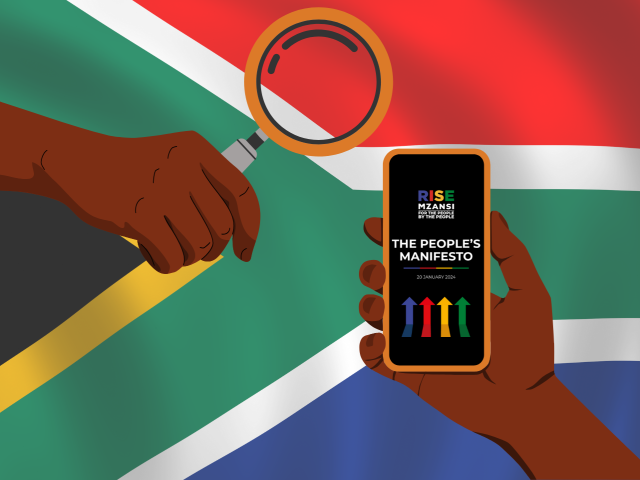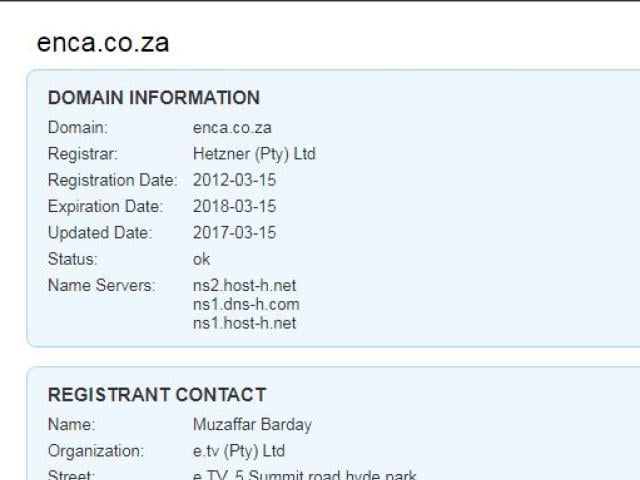In 2015, global Ponzi scheme MMM started its Nigerian website, promising investors a 30% monthly profit.
But it was only seven years later that the country’s Economic and Financial Crimes Commission (EFCC), responsible for investigating financial crimes, declared MMM and other similar entities to be Ponzi schemes.
By that time, an estimated three million Nigerians had lost almost N18 billion to MMM, which began in Russia in the 1990s before later folding.
A Ponzi scheme pays returns to existing investors with the capital contributed by new investors, increasing the odds of a collapse as the capital has to be spread between more investors and the pool of possible new investors grows smaller.
Fake investment schemes are widespread in Nigeria and have been increasing in number on the internet.
Africa Check has investigated several of them on Facebook. They tend to follow similar patterns in order to convince social media users of their credibility, and often offer unrealistic investment returns.
In July 2023, several Facebook accounts impersonating the state-owned Nigerian Television Authority promised returns on investment through an investment platform called Jamalife. This was despite the platform being deemed illegal by the Securities and Exchange Commission (SEC) in 2020.
Similarly, some Facebook accounts use the name of Chymall Investment, an old Ponzi scheme that no longer exists. Ghana’s Economic and Organised Crime Office warned against the platform in 2021.
Scammers impersonate legitimate business
Africa Check also recently investigated Facebook accounts promoting an investment platform called Bold Gains. Some Nigerians have complained online that they have been scammed by the platform.
Bold Gains uses a network marketing campaign, where distributors sell products and earn commissions based on their sales and those of their sales team. More importantly, the platform's name is being used for investment scams on Facebook.
Impersonation of legitimate financial platforms is also on the rise in Nigeria. Luno, a player in the cryptocurrency industry, has been targeted by social media accounts claiming to offer cryptocurrency investments in Luno’s name. Others affected include fintech company OPay cash investment and foreign exchange trader OctaFX.
These are just some of the investment scams we've come across in June and July 2023. Many of them have three things in common:
-
Targeting celebrities and news platforms to cultivate credibility
Facebook pages promoting risky or fraudulent investment platforms often pretend to belong to or quote popular figures to convince users to trust them.
For example, accounts promoting the Chymall platform have used a short video of Nollywood actor John Okafor, popularly known as Mr Ibu, to solicit investments. Similarly, a post bearing the name of Jamalife uses another Nollywood actor, Patience Ozokwor.
Another video shows a woman talking to a police officer who is apparently a member of the Jamalife platform.
The accounts also impersonate popular and trusted media platforms with large followings. For example, this post promoting the Norland investment platform is published on a page impersonating the British Broadcasting Corporation (BBC). Similarly, posts promoting Bold Gains investments pretend to be from Nigerian private broadcaster Channels Television.
-
A ‘high profits in no time’ hook
It is usually a red flag if someone promises to double your investment in a few hours or days. Bold Gains and Jamalife offer to make you a profit in one hour. Chymall offers a return within two hours.
The EFCC has warned Nigerians to be wary of platforms that offer improbable returns in a short period of time.
“It's possible to make such gains every now and then. But it is almost impossible to sustain them. Any person or entity promising such over a prolonged period is unlikely to be genuine,” said Babatunde Akin-Moses, chief executive officer of Sycamore, a company offering financial services in Nigeria. He urged people to invest where they understood and not to be too eager to make large sums of money quickly. “Follow credible people, news outlets and blogs for professional advice,” he said.
-
Asking for personal information
At some point in many of the Facebook posts, you will usually be asked to click on a WhatsApp link or send a direct message to the poster. The goal is often to have you share personal information such as your national identification number, or NIN.
In Nigeria, the NIN is a unique set of 11 numbers assigned to an individual upon registration into a national database. When a NIN is exposed, it can lead to identity theft and fraud. The National Identity Management Commission, which is responsible for registering Nigerians, has warned people to keep this identity number safe.
Victims share their experiences
Nigerian journalist Salahudeen Abiola recounted in April 2022 how he was scammed by a Norland investment post on a Facebook page calling itself “BBC News Nigeria”.
“I felt the investment was genuine because the BBC had published an article on them,” he told the Foundation for Investigative Journalism (FIJ). The journalist lost N90,000 (about US$120) to the scheme.
In November, the FIJ also reported that a Lagos-based retiree, Folashade Owoeye, lost N132,000 (US$170) to the Bold Gains investment platform.
Africa Check spoke to Moses Joshua, a cybersecurity expert, about why people fall for investment scams online. Joshua is the co-founder of the Cybersecurity Education Initiative, which aims to combat cybercrime in Nigeria.
“Many that fall victim often do not have the basic knowledge on how to keep themselves safe online,” he said.
“Some people are also desperate to make quick money and they fall into the trap of scammers. This can also be attributed to poverty.”
Identifying scams was not always easy. Joshua said this was because of the different formats and techniques used by fraudsters. “As technologies advance, and new features are added to applications, the techniques behind scamming change.”
But grammatical errors were a telltale sign. “Some scammers will also ask someone to send information urgently. This is a red flag. Also, requesting too much private information is also a sign that it isn't genuine,” he said. Joshua said the promise of unrealistic profit was another feature.
We asked him how to counter the problem. “For me, I would start with education. People should learn about recent scams and fraudulent techniques.”
People should be careful about where they upload their personal information, such as on popular loan apps and other applications, he said. Users should also try to verify online information from a legitimate source.
Identifying investment scams on Facebook
To summarise, there are some red flags that can help you beware of investment scams on Facebook:
- Poorly written posts: Posts that are investment scams are typically poorly written. Remember that if they really came from a reputable media house, posts would likely be well-written. A professional business would also be expected to publish well-written posts to communicate with potential customers.
- A small number of followers: Media houses and celebrities usually have thousands of followers on Facebook and other social media platforms. Fake pages will sometimes have as few as 10 followers. Also pay attention to whether an account or page has an authentic verification badge or not.
- Fake comments from “beneficiaries”: When reviewing the comments on posts from fake investment platforms, we have often found supposed beneficiaries for example sharing how much they have profited from investing. Don't fall for it.
- The website is hard to find: Search for the website of the investment platform. If the website is difficult to locate or the company appears to no longer exist, tread carefully.
- Spamming or repeating the message many times over: If you perform a basic search of the investment platform's name on Facebook and find several similar posts in the same or a slightly different format, this is a warning sign. When debunking an investment scam, we typically find many similar posts on Facebook, not just the primary one under analysis in a report.
- No response: Simply verifying the account in question and asking questions could have protected many from investment scams. When Africa Check asks questions of legitimate businesses, we usually receive responses. But most suspicious platforms don’t bother to respond.
- Recent or inconsistent account creation date: The creation date could tell you a lot about a social media account. All you have to do is look for the “About” button. This will give you the date the account was created. You can then compare this date to when the legitimate company was started. You will probably see a significant discrepancy if the Facebook account is fake.
For more tips on how to protect yourself against online scams, read our guide to Facebook scams and how to spot them.








Add new comment